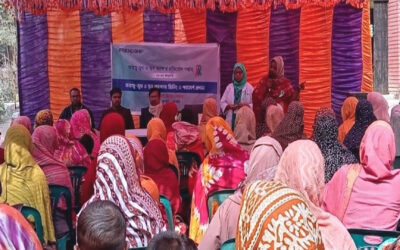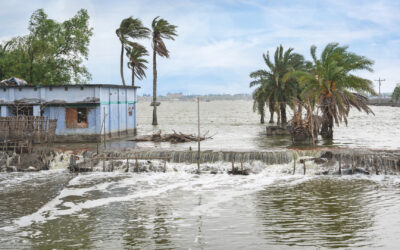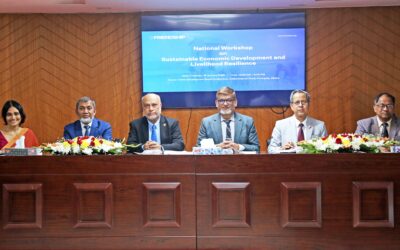On Human Rights Day, it is important to keep in mind the sufferings of the people at the forefront of the climate crisis

by Tahmeed Chaudhury
December 10, 2023
While world leaders geared up for negotiations at COP28, in a corner of the Blue Zone, an eight-grader from a char (river island) in Gaibandha demanded climate justice: We have lost a lot. You owe me and my country compensation.
Mosammat Biuti Akhter, of Friendship School, Batikamari, and her family had to shift homes after a devastating flood eroded her village last year. She said at the Children & Youth Pavilion, “We had to disassemble our house and shift to another land as the ground beneath our feet gave way. Flood waters inundated our farmlands and destroyed our crops. We lost livestock too, which provided a means of income to us.”
In Friendship’s working areas in the northern riverine regions of Bangladesh, communities in shifting sandbar islands regularly lose their homes and lands to erosion and are forced to migrate to save their lives, possessions and livelihoods. They are left with few options than to rebuild from scratch after enduring endless humanitarian challenges. In Friendship’s projects in the southern coastal belt prone to frequent cyclones, impacted people can only watch in horror as their homes are uprooted and their farmlands destroyed. In both regions, people are confined to an endless cycle of building and rebuilding, unable to catch a break and get back to their feet. The debt cycle that follows only adds fuel to the fire.
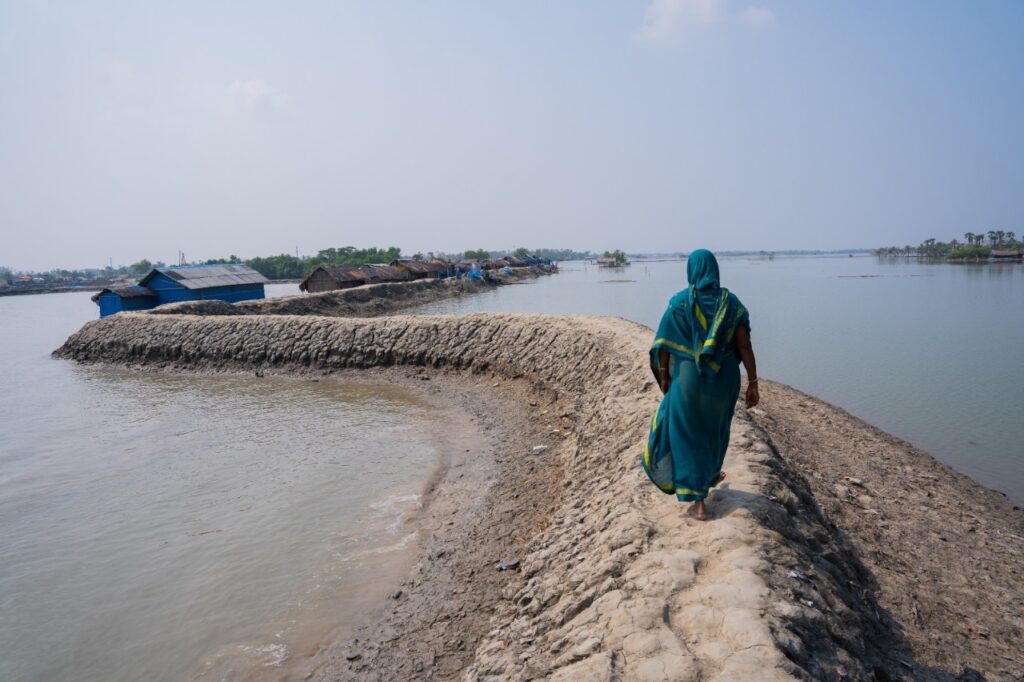
According to Mosammat Ronzina Akhter, also an eight-grader in Friendship Secondary School Nawshala, the developed countries that account for much of the emissions that contribute to climate change and lead to such sufferings of human lives, should take responsibility. “We incur loss and damage on a regular basis. The more developed nations should understand our grievances and contribute to our resurgence and adaptation. We deserve climate justice.”
Both Biuti and Ronzina travelled to Dubai to participate in a plenary session in the ongoing COP28. They shared first hand experiences of dealing with climate change induced adverse events that has become their bread and butter.
December 10 is globally observed as Human Rights Day, marking the 1948 pledge made by the UN General Assembly of the ‘Universal Declaration of Human Rights’. The day is a stark reminder of the fact that every human being, irrespective of race, colour, religion, sex or social origin, is entitled to a life of dignity, integrity, liberty, freedom of expression and access to basic necessities to sustain lives.
The climate crisis that grips a large proportion of the population today, often deprives people of these very basic rights and subjects them to adversities such as the loss of lives, livelihoods, homes, etc. Extreme weather events destroy homes and lands, giving birth to climate refugees, tidal surges and increasing sea levels infuse fertile soils with salinity, rendering them unusable for agriculture, and increasing extreme climatic events lead to unavailability of fresh water for drinking and agriculture, and compromise hygiene, giving way to a myriad of diseases and health concerns.
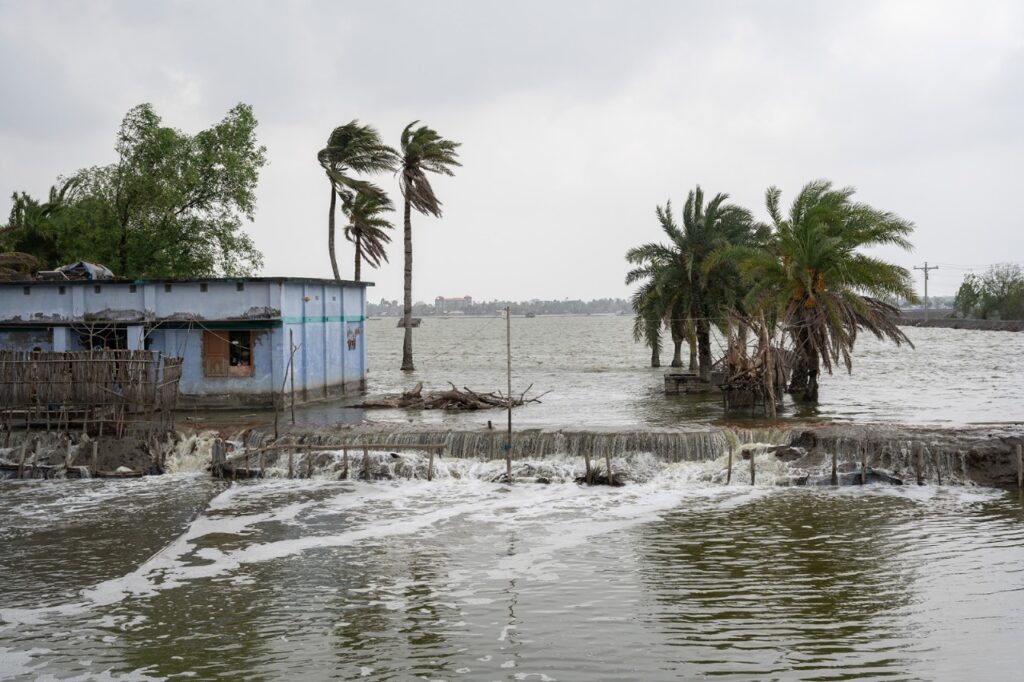
With scientists, experts, advocates and activists raising their voices during the ongoing COP28 in Dubai, it remains to be seen if the human sufferings and the voices of those at the forefront of the climate crisis will be brought forward, especially on the International Human Rights Day.
Barrister Ayesha Taasin Khan, head of Friendship’s Inclusive Citizenship sector, addressed the critical concept of climate intervention law in a COP28 session. “Such interventions come with the responsibility to ensure ethical, transparent and equitable practices,” she says. “It is a global challenge that demands a united response. We call for the establishment of international agreements and treaties that set clear guidelines for the research, development, and deployment of climate intervention technologies. These agreements should be binding, with robust mechanisms for monitoring, reporting, and verification.”

